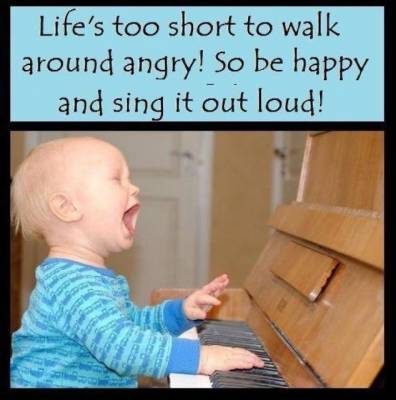Circle Speech - Small Talk
"Music Is the Greatest Communication in the World"-Lou Rawls
- Font size: Larger Smaller
- Hits: 3340
- 0 Comments
- Subscribe to this entry
- Bookmark

Music is communication
Music and communication are a natural combination. Songs and music create meaning for people and become part of memories and tradition.
The properties of music also help children with communication challenges to be successful speakers. I use music and instrument play with children because it helps pave the way for speech.
1) Music is largely "right-brain". The areas of the brain that control and interpret rhythm, melody and pacing are activated when we hear music. language is usually a "left-brain" activity. The areas of the brain that store, retrieve and hear words are on the left side in most people. When a person combines that right and left brain together, like in a song, the two halves can "help" each other. Children who find speaking difficult often find that singing can be a helpful tool.
2)Musical mechanics can help make speech sounds more clear. Singing, by it's nature, allows a person to exaggerate mouth movements, stretch out vowel sounds and highlight sounds, syllables and sentences. Precise mouth movement, slowed rate, pacing and drawing out syllables are all strategies for improved speech clarity.
3)Music is repetitive. Not only do songs repeat the same chorus throughout, the song does not change from day-to-day like conversation can. You can create routines or traditions with songs. You can sing a bedtime song or a bath time song. Songs are used to celebrate special occasions or holidays. Once your child knows a song, she will be more likely to join in and sing, too. When she is comfortable, you can "back out" of the song and let her finish.
4)Music is Social. In school, play or family activities, music can be a great way for a new communicator or a shy child to join in the fun. If everyone is singing, your child might feel less pressure to get all of the sounds and words correct. He will have a model in the other singers. If your child learns songs in school, he can come home and teach you. It builds confidence to be the "expert".
